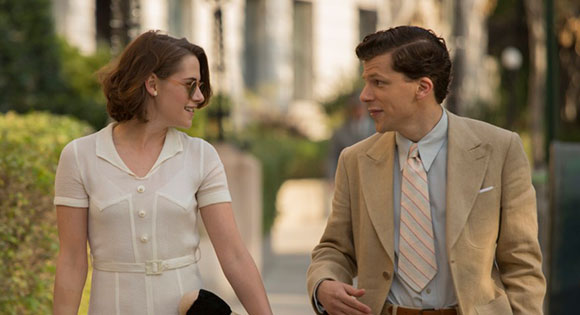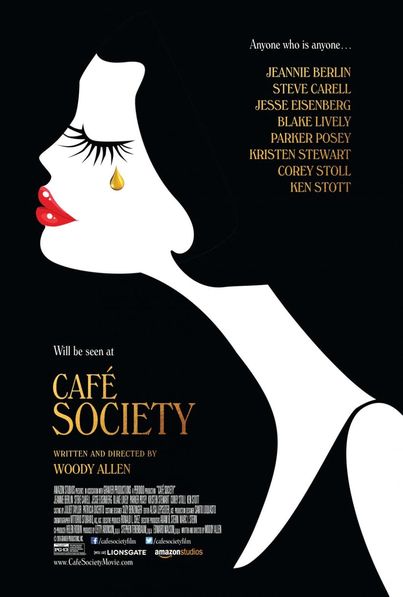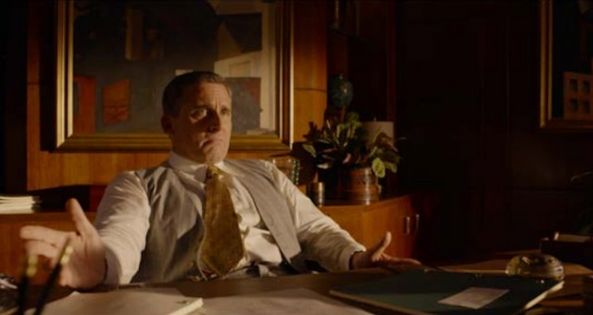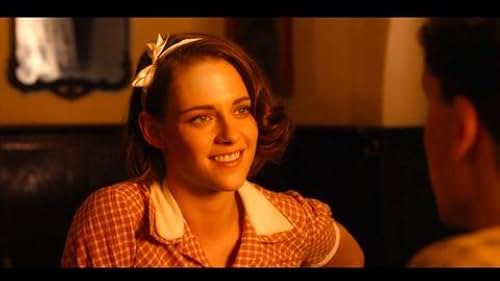Café Society (2016)

Café Society is a visually stunning and emotionally resonant film that captures the glamour and complexities of life in 1930s Hollywood and New York City. Released in 2016 and directed by Woody Allen, the film blends elements of romance, drama, and comedy, presenting a rich tapestry of aspiration, love, and the bittersweet nature of human relationships. With its sharp dialogue and evocative imagery, Café Society offers a nostalgic yet critical look at the pursuit of the American Dream.
The narrative follows Bobby Dorfman, portrayed by Jesse Eisenberg, a young man from the Bronx who moves to Los Angeles with dreams of finding success in the film industry. He arrives in Hollywood to work for his uncle, a powerful agent played by Steve Carell. This new environment immerses Bobby in the glitzy world of movie stars, lavish parties, and the intoxicating allure of fame. Almost immediately, he falls for Veronica, the charming and beautiful secretary played by Kristen Stewart, who becomes the center of his affections.

As the plot unfolds, Bobby’s romantic aspirations become complicated. Veronica is involved with a more established man, creating a love triangle that drives much of the film’s emotional tension. Bobby’s initial infatuation with the glamorous lifestyle of Hollywood is contrasted with the painful realities of unrequited love and the challenges that come with navigating relationships in a world driven by ambition and desire. This dynamic effectively illustrates the film’s central theme: the often elusive nature of happiness and success.

Café Society delves into several poignant themes, including ambition, nostalgia, and the search for identity. The film poignantly reflects the American Dream, illustrating how the pursuit of success can lead to both fulfillment and disillusionment. Bobby’s journey highlights the sacrifices individuals make in their quest for a better life, as he grapples with his place in a competitive and often ruthless environment. His character embodies the struggles many face in balancing personal aspirations with the complexities of love and family ties.

The film’s nostalgic tone is further emphasized by its richly crafted visuals. The cinematography by Vittorio Storaro is exquisite, capturing the essence of the 1930s with vibrant colors and carefully designed sets that evoke the elegance of the era. From the bustling streets of New York to the sun-soaked beaches of Hollywood, each frame is meticulously composed, allowing viewers to fully immerse themselves in the film’s aesthetic. The attention to detail in costumes and production design enhances the authenticity of the period, creating a captivating backdrop for the unfolding drama.

Musically, Café Society features a lush soundtrack that includes classic jazz tunes, transporting audiences back to a time when music played a vital role in social gatherings and personal expression. The soundtrack not only complements the film’s mood but also serves to deepen the emotional connection between the characters and their experiences. The use of music enhances key moments, reflecting the characters’ inner lives and the cultural context of the time.
Upon its release, Café Society received generally positive reviews, with critics praising its performances, particularly those of Eisenberg and Stewart. Viewers appreciated the film’s blend of humor and drama, as well as its exploration of timeless themes related to love and ambition. While some felt it echoed familiar motifs from Allen’s previous works, others found it to be a fresh and engaging take on the complexities of romantic relationships.
In conclusion, Café Society is a beautifully crafted film that artfully combines romance, humor, and drama within the framework of 1930s Hollywood. Through its engaging narrative and captivating performances, the film invites viewers to reflect on the nature of dreams, love, and the sacrifices made in their pursuit. Woody Allen’s signature style is evident throughout, making Café Society a noteworthy entry in his filmography. Ultimately, the film serves as a reminder that while the pursuit of happiness and success may be fraught with challenges, the experiences and relationships forged along the way are what truly enrich our lives.











